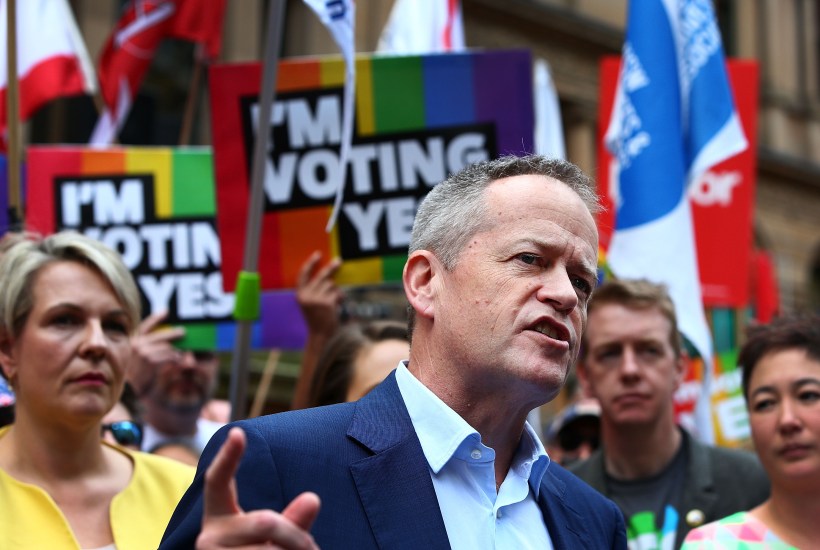Labor voters are the most considerate, salt-of-the-earth people you’re ever likely to meet at a polling booth sausage sizzle. How so?
Well, recent polling shows Labor voters, more than supporters of any other party, think freedom of conscience, belief and religion must be guaranteed if same sex marriage is legislated.
Some in the commentariat interpret this as a nuanced consideration of what they term “competing rights”, and the basis for a deal between churches and the LGBTQ lobby.
Already a subscriber? Log in
Subscribe for just $2 a week
Try a month of The Spectator Australia absolutely free and without commitment. Not only that but – if you choose to continue – you’ll pay just $2 a week for your first year.
- Unlimited access to spectator.com.au and app
- The weekly edition on the Spectator Australia app
- Spectator podcasts and newsletters
- Full access to spectator.co.uk


























Comments
Don't miss out
Join the conversation with other Spectator Australia readers. Subscribe to leave a comment.
SUBSCRIBEAlready a subscriber? Log in